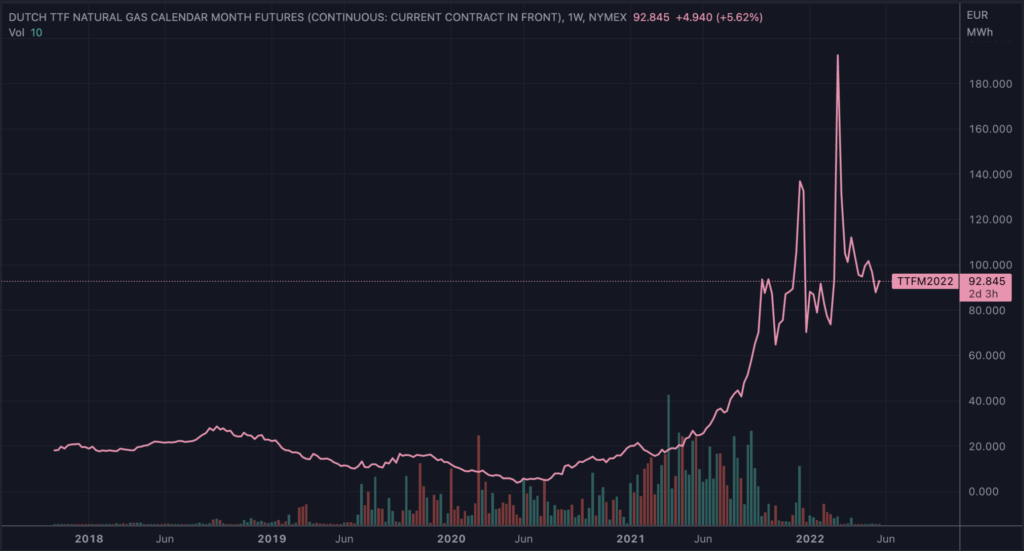Surging natural gas and oil prices are expected to substantially erode at Europeans’ income in the coming years, ultimately prompting governments to take action and even impose windfall taxes on energy providers.
A recent note from Citigroup Global Markets seen by Bloomberg estimates that natural gas and power bills could rise from 3.5% of household disposable income in 2021 to 4.5% by 2023, reaching as high a 4.8% come 2024. The analysts suggest that countries in eastern Europe could see an even more substantial erosion of disposable income given that commodities are responsible for a greater proportion of household expenses.
In fact, Citigroup forecasts that utility bills could jump to more than 3% of Europe’s GDP over the next several years as commodity prices continue to skyrocket. The rise in energy costs, coupled with record-high persistent inflation across all categories— especially food— is creating mounting pressure on household finances. A Citigroup survey found that one quarter of European consumers aged 18 to 29 would not be able to pay their energy bills should they increase by a mere one-tenth.

As such, the analysts anticipate that governments will not be able to sit idly by much longer, and could be forced to impose windfall taxes on utility companies in an effort to alleviate some of the financial burden on households. So far, Spain and Portugal have set price ceilings on natural gas used for electricity generation, while the UK government imposed its so-called Energy Price Cap, which prevents utility providers from passing the entirety of price increases onto consumers.
Information for this briefing was found via Bloomberg. The author has no securities or affiliations related to this organization. Not a recommendation to buy or sell. Always do additional research and consult a professional before purchasing a security. The author holds no licenses.









